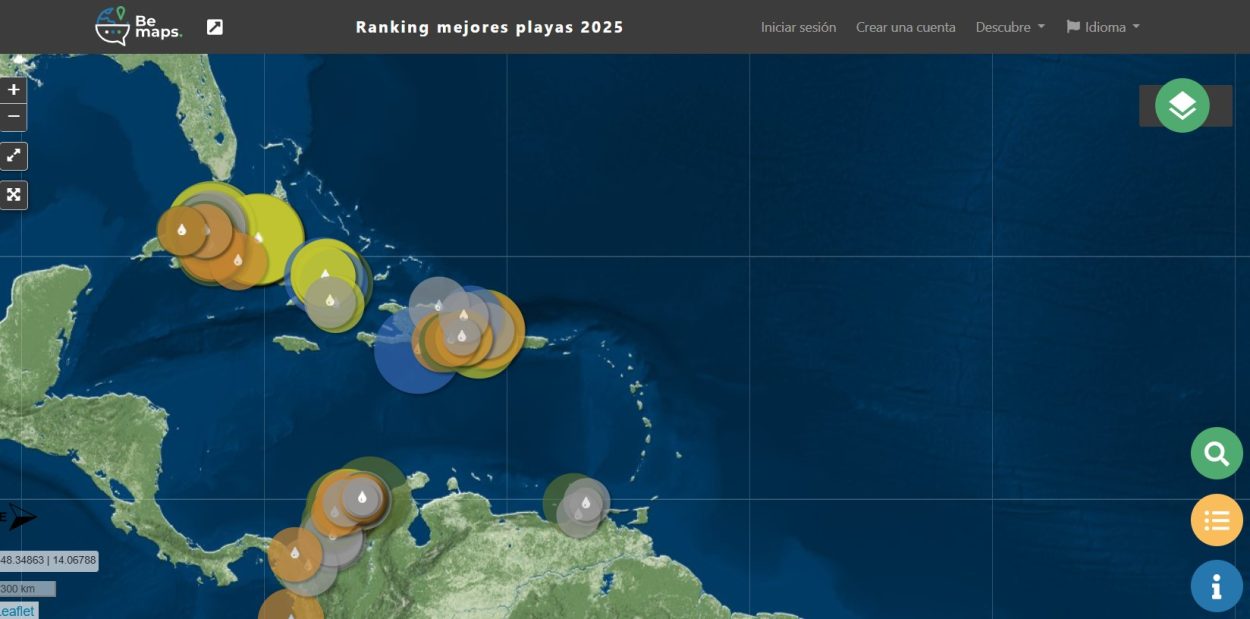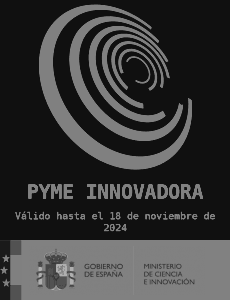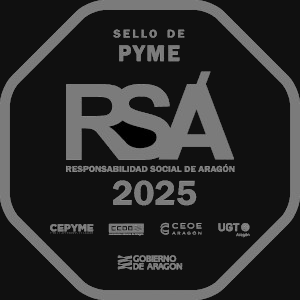
THE 2025 RANKING OF BEST BEACHES ON BEMAPS
This coming Sunday, 8 June, coinciding with World Oceans Day, the results of the 2025 ranking of the best beaches will be announced.
For the first time, the ranking of the best beaches presents information about the different beaches on a map, and BeMaps has been chosen to do so.
In addition to being able to easily design a flawless map and share it on their website, what convinced them was knowing that they have complete control over their data.
The presentation can be followed live on YouTube at 12:00 p.m. Panama time: https://www.youtube.com/live/QQKH35P5JJk
The ranking of the best beaches is a scientific and objective classification that evaluates the quality of beaches through a detailed methodological framework.
It is a system of 20 indicators that evaluate different aspects of the ecosystem and beach services, grouped into four dimensions:
- Recreation (access, services, safety)
- Protection (coastal defence, vulnerability)
- Conservation (habitat, species, heritage)
- Sanitation (water and sand quality, litter)
How do they do it?
- Trained assessors score each criterion from 1 to 5.
- The scores are adjusted according to the type of beach (urban, rural or village).
- A final quality value (BQV) and a visual graph showing performance by dimension are generated.
- An assessor credibility index is also calculated.
What is it used for?
The ranking information can be useful for various types of users:
- Tourists: choosing beaches according to their needs (safety, nature, services).
- Managers: identifying weaknesses and planning improvements.
- Tourism sector: promotion and economic development.
- Environment: promoting sustainability and ecosystem restoration.
It is a rigorous system, useful for sustainable management and for visitors to make informed choices.
The Best Beaches Ranking project is coordinated by:
- Elaine B. de Oliveira (Federal University of Rio Grande – UFRGS)
- Camilo M. Botero (International Centre for Training in Beach Management and Certification – CIFPLAYAS)
Both lead the Coastal Systems Research Group and are responsible for developing and applying the ranking’s methodological framework.
CIFPLAYAS (International Centre for Training in Beach Management and Certification) is an initiative dedicated to training professionals in the sustainable management of beaches and coastal environments. Its objective is to improve the environmental quality, safety and accessibility of these spaces through educational programmes that are accessible from anywhere, even with low connectivity. It is aimed at municipal technicians, tourism managers, environmental managers and any professional linked to the coastline.
Among its main services are courses on certifications such as Blue Flag, beach waste management, coastal ecosystem restoration, universal accessibility, environmental education, and international regulations. Its strengths are the flexibility of the training, the practical approach, and the support of international networks such as PROPLAYAS and research groups specialising in coastlines.
rsos sobre certificaciones como Bandera Azul, gestión de residuos en playas, restauración de ecosistemas costeros, accesibilidad universal, educación ambiental y normativas internacionales. Sus puntos fuertes son la flexibilidad de la formación, el enfoque práctico y el respaldo de redes internacionales como PROPLAYAS y grupos de investigación especializados en costas.



